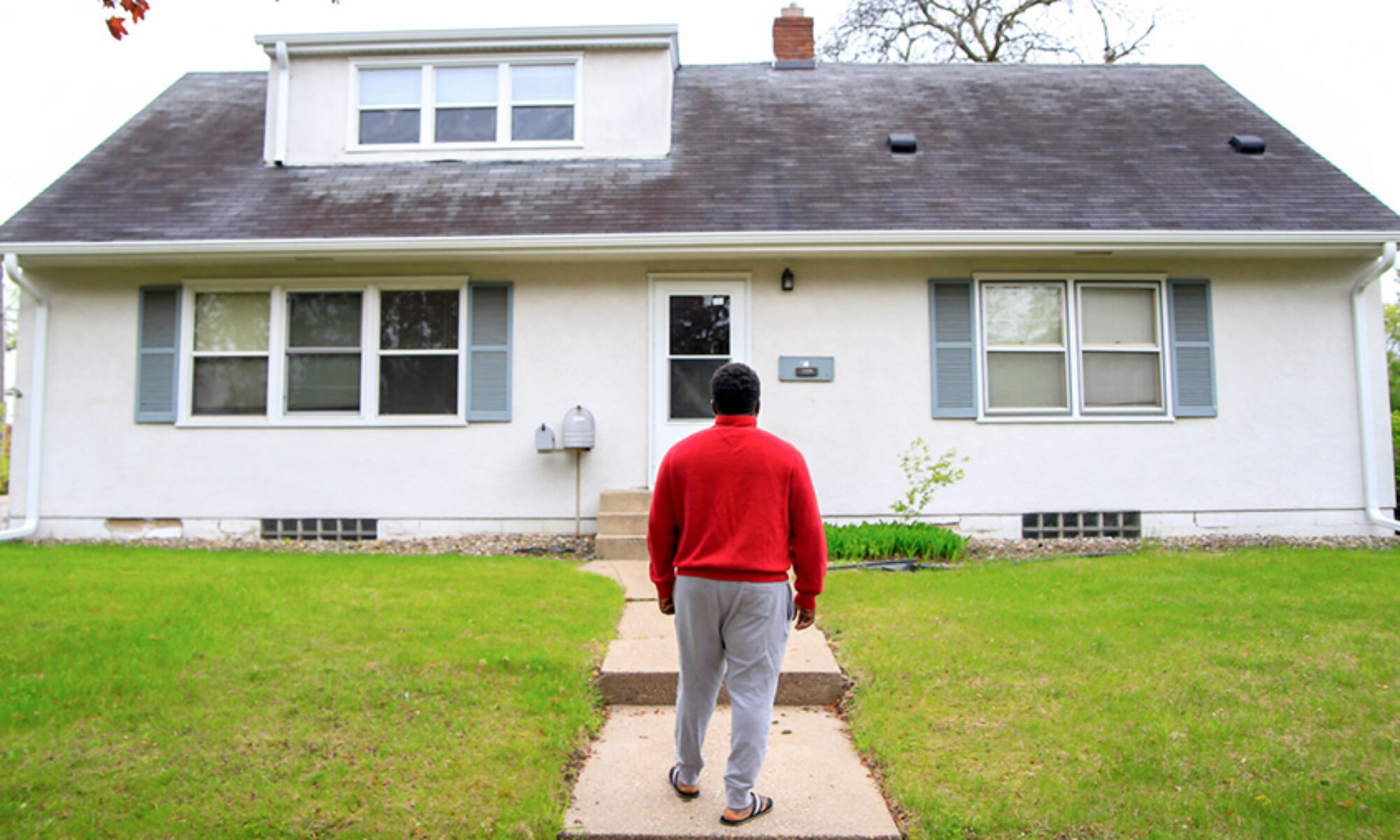Folding sambusas
I fold the pastry diagonally, exactly like Alamnseh showed me, and yet somehow my sambusa does not turn out like hers. I watch as she quickly and expertly tucks the dough into neat corners, passing it between her hands like pastry origami. I set my sad sambusa in the pan, and rest my sticky hands on the garbage-bag-apron. Meanwhile Alamnseh has finished two more perfectly shaped sambusas and is pinching the corners on a third. She catches me observing and laughs.

Most of my time with Alamnseh is spent driving to grocery stores, banks, and doctor appointments. She is patient with me when I make wrong turns–like the time I asked her if we could eat sambusas together, forgetting that it was Ramadan and she would be fasting until sunset. The next week, we still made sambusas, and she sent me home with a Ziploc bag to share with my roommates.
Mutual transformation is one of our core values here at Jonathan House. It means that we give and receive in our cross-cultural relationships. Mutual transformation can be the simple act of learning how to fold sambusas or it can involve a moment of vulnerability met with understanding and acceptance.
Sharing scars
John started volunteering at Jonathan House this January when he was still recovering from a full knee replacement surgery. As he started his new routine of meeting with residents, it took a little extra time to transition between sitting and standing. One afternoon, as he was meeting with Salana, John started the process of standing up, bracing a hand on the couch for support. Salana noticed his struggle and offered a hand. Taking Salana’s hands, John stood up quickly and started to explain why he needed the extra assistance. But he realized that with the language barrier, words were probably not the best way to communicate.
John pulled up his pant leg to show Salana his scar. Salana stepped back and smiled. He understood. Without hesitation, he pulled up his own sleeve to show John the myriad of scars on his arm.
“It was in that moment that two persons, initially strangers, connected as two human beings and opened the door to friendship and mutual care for each other.”
In our short time at Jonathan House, John and I have both been recipients of an abundance of patience and help. Alamnseh holds my hands as we wrap and fold pastry, and I hold hers as we navigate a busy parking lot. Salana offers his hands to help John stand up, and John helps Salana find his footing in a new country.
Mutual care.

I fold the pastry diagonally, exactly like Alamnseh showed me. I am on my fourth or fifth sambusa and getting better. Confidently, I reach for the pot of meat and onion only to realize that my cone-shaped pastry has fallen apart. Alamnseh giggles and hands me another triangle of dough.
She lets me try again, and I let her teach me.
World Refugee Month June 2024
Join us on the front lines of hope
Organize a Jonathan House presentation at your church for World Refugee Month!


